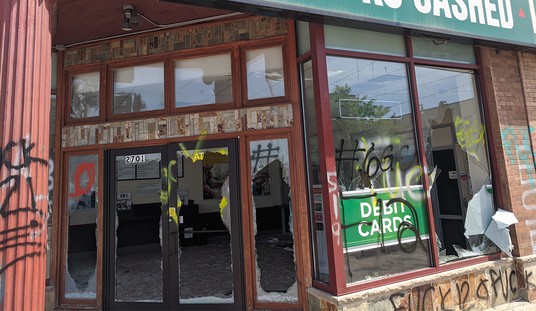The Fed and other central banks have acted to bail out the Euro: “The central banks are providing liquidity to the financial system by lowering the price on existing dollar swaps, making it easier for banks to get access to dollars.” The Wall Street Journal says it’s just aspirin. Europe remains in financial intensive care. “The coordinated action doesn’t directly address Europe’s government-debt and budget woes. Instead, it is aimed at alleviating the impact of those troubles on global markets.” Zerohedge reports the decision to buy the aspirin came on Monday with one member of the Fed dissenting.
“The European debt problem can’t be solved by liquidity provisions alone,” Bank of Japan Gov. Masaaki Shirakawa said at a hastily arranged news conference. “The step is meant to buy time for European countries to proceed with their fiscal and Berenberg economist Christian Schulz said the move was largely a symbolic gesture aimed at restoring calm.
Seven Years of Lean: The price that may have to be paid for a European recovery was foreshadowed by its estimated effect on Britain, where officials told the public that average household incomes were going to drop by 7.4% over the next seven years. If all goes well, Britain can regain its 2002-2003 level of income by 2016. The very recent past were the “good old days” and we are unlikely to see them for a long, long time.
BBC economics writer Paul Mason calls 29/29/2011 a “turning point in British history”, because it signals the acceptance of the necessity of a long period of belt-tightening. It is nothing short of an all-out attempt to prevent a catastrophe because it can no longer buy its way out of trouble.
So why did Osborne make the choice to deal with deficit first, growth second? The answer came from Fitch Ratings within hours of his speech:”The capacity of UK public finances to absorb adverse economic and financial shocks that would result in yet higher public debt while retaining its ‘AAA’ status has largely been exhausted.”
In a broader context it means that when the aspirin wears off the pain will start to be felt. The bad news is that everyone is out of aspirin. The worse news is whether the British government, in waiting this long to warn the population of hard times is not even now holding back the worst facts.
At All Costs: But there must be more aspirin. France’s foreign minister, Allan Juppe says Europe is in “an existential crisis” and sadly enumerates what is at risk:
This could call into question all that we have created, not only in the 20 years since the Maastricht Treaty, but since the foundation of the European community.
Surely that can’t be risked? All the “gains” Europe has amassed over the past decades would vanish in a puff of seven-year smoke. Mark Weisbrot of the Guardian argued that the Fed should buy Italian bonds because it will be money well spent and costless to the American taxpayer. “If the ECB and European authorities stick with their suicidal doctrine of austerity, then the Federal Reserve must intervene.”
Some of us have called for the Federal Reserve to intervene before this happens and do the ECB’s job for it. The Fed has the capacity to do so, and like its prior quantitative easing in the US, this would be costless to the taxpayers. It might cause a bit of a political storm, but that would be a small price to pay to avoid another recession that would throw millions more people out of work – in the United States, Europe and much of the world.
Well it’s not as if the administration is trying. Zerohedge says of the swap “the fact that the discount rate is 75bps whereas OIS+50 is under 60bps creates some odd optics, as it is cheaper now for European banks to borrow dollars from the ECB than for US banks to borrow dollars from the Fed. ” I guess we’ll find out more as the day keeps rolling along.
This throws the Juppe question into sharper focus. Perhaps what is in question is not Europe’s existence, but Europe’s sanity. For too long European — and American — politicans have regarded the practice of living within one’s means suicidal. Now that there is no more alternative to what the socialists regard as “suicide”, the call goes out: more aspirin.
At all events time is short. Economic and Monetary Affairs Commissioner Olli Rehn said on Wednesday as EU finance ministers met in Brussels that there were 10 days left to save the Euro. Another Guardian article says that foreign central bank intervention was necessary because European banks were nearly frozen into illiquidity. “Banks have been charging each other more and more to turn their euros into dollars and that the rates have been reaching levels close to those when Lehman Brothers collapsed in September 2008. Hence central banks decided to act”.
Yet the help from the Fed remains in the best of circumstances, a palliative. The Guardian quotes a source which says “the dollar funding in the eurozone is symptomatic of a broader liquidity squeeze. And even if banks in the eurozone have less of a liquidity problem on their hands today than in they did in late 2008, they have a greater solvency problem” One might add, so does the rest of Europe — and the United States.
Holding the Bag: Benedict Brogan at the Telegraph writes, “Everyone is scrambling to understand the significance of this surprise announcement – latest on our live blog – from the major central banks, namely that they are making unlimited amounts of cheap dollars available to troubled institutions. It looks like they have decided to tell the markets that no banks will be allowed to fail, by offering themselves as a sort of super-guarantor, a global bank of last resort.
It should also tell the American people something. Risk belongs to the last man holding it. ECB–> Fed –>. If the Euro collapses, guess who gets to hold the bag? Juppe? The writers in the Guardian? Hmm. If the dollar, which is the reserve currency of the world is hooked to the EU’s fate, what could go wrong?
http://www.youtube.com/watch?v=t3UebL-x-sw
Oh ye of little faith.
Occupy Ahead of Time: In the UK, 300,000 public sector workers are on strike to protest a proposed reduction in their pensions. Greece has ordered 18,000 more public sector workers to “stand by” even after it had just put 180,000 public sector jobs on hold. The Welfare State state is collapsing under its own weight.
In retrospect the decision the emergence of Occupy movement, with its Depression-era tent cities may have been based on the foreknowledge that the crash was near. It is a reserve army of socialists whose reaction, after they find out that their “gains” are gone, is sobering to imagine. They have just been handed a death sentence by their own actions and will soon need a scapegoat or someone to blame. Who might that be?
Storming the Castle at Amazon Kindle for $3.99
No Way In at Amazon Kindle $3.99, print $9.99
Tip Jar or Subscribe for $5










Join the conversation as a VIP Member